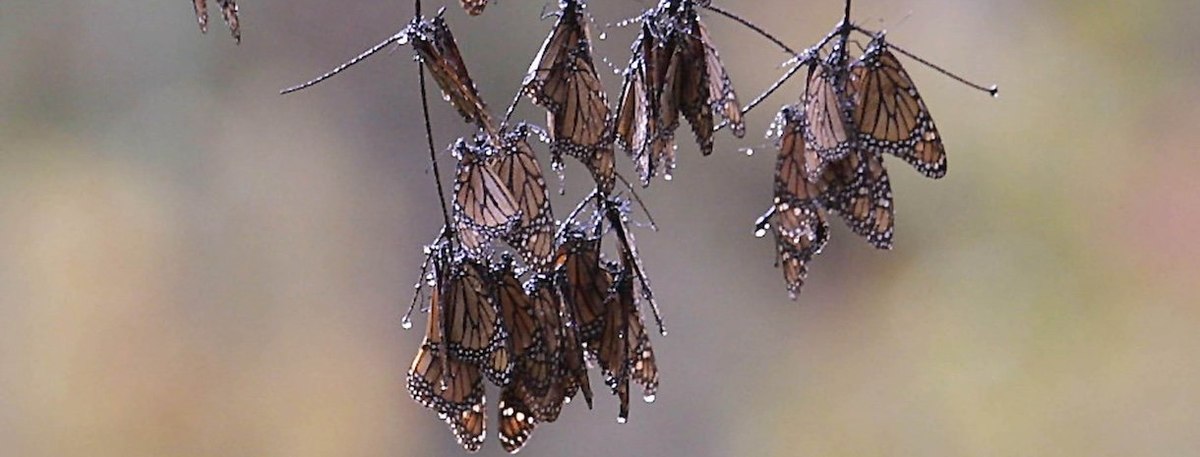It’s officially summertime and that means it’s insect season — at least according to 79% of Americans.
Americans are not particularly excited about a seasonal influx of insects: 49% say they feel very or somewhat negative about encountering insects or bugs outdoors while only 13% feel positively, according to a new YouGov poll.
Americans who live in West North Central states — Iowa, Kansas, Minnesota, Missouri, Nebraska, North Dakota, and South Dakota — are the most negative about outdoor bugs: 70% say they feel negative about interacting with insects outdoors.
Additionally, slightly greater shares of Americans who live in towns (55%) or suburbs (51%) have negative feelings about interacting with bugs outside than of Americans who live in cities (47%) or rural areas (43%). More Black (56%) than white (48%) and Hispanic Americans (49%) feel negatively about encountering bugs outdoors.
2024 could be the hottest summer in the continental U.S. on record. Hotter weather may be associated with an increase in the number of insects that harm crops, such as the oriental fruit moth, and a decrease in the number of certain insects that are critical to the environment, such as dung beetles and bumblebees.
44% of Americans say that there are about the same number of insects and bugs outdoors today than when they were growing up, 19% say there are fewer and 23% say there are more.
A larger percentage of Democrats (27%) than Republicans (11%) believe that there are fewer insects outdoors these days than when they were children. And adults 65 and older are more likely than adults under 30 to see a decrease since they were growing up (25% vs. 15%) — which may be because much more time has passed for the older age group. In contrast, 30% of Americans who live in rural areas — but only 22% of Americans who live in urban areas — say there are more insects outside today than there were when they were growing up.
Only 16% of Americans believe that climate change has decreased the amount of bugs, 20% say it is increasing their number, and 26% say it has had no effect on their number. More than three-times the share of Democrats (29%) than of Republicans (29% vs. 8%) say that climate change is reducing insect populations. One-fifth of Americans (20%) say that climate change has, in fact, increased the number of insects. Another 26% of Americans state that climate change has not impacted the number of insects at all. A recent study found that 40% of insect species populations are decreasing due to the change in climate.
One-third of Americans (32%) will always or usually attempt to kill an insect that they consider to be harmful to themselves. Slightly more Americans (38%) would always or usually attempt to kill an insect if it posed a threat to the environment. 40% of Americans 65 and older and 29% of adults under 30 say they always or usually attempt to kill insects they consider harmful.
14% of Americans — including 11% of Americans who say religion is very important to them and 23% who say it is not at all important — say they would never kill an insect, even if it posed a danger to themselves.
While majorities of Americans at least sometimes try to kill a bug that is harmful to themselves or the environment, a majority of Americans will never or rarely touch or pick up a harmless insect. Slightly more young adults than older Americans will interact with harmless bugs. 78% of Americans who live in suburbs and 67% in rural areas say they will never or rarely do this.
18% of Americans who have positive perceptions of insects will always or usually touch a harmless bug that interests them while 51% will never or rarely do so.
79% of Americans say they notice the largest number of insects and bugs in the summer. While only 14% say they notice the largest number in the spring, two broods of millions of cicadas — one brood that hatches every 13 years and one that hatches every 17 — popped up across the southeastern United States this past April. Climate change is predicted to affect the seasonality of insects, such as by making cicadas hatch earlier in the year, so this percentage may shift in coming years.
Cicadas are ranked fifteenth of 20 insects surveyed about: 16% of Americans have a very or somewhat positive reaction to interacting with them. The least popular insects are mosquitoes and cockroaches (5% positive each).The most popular is the butterfly. Butterflies are slightly more popular among women (85%) than among men (74%) and among white Americans (83%) than among Black Americans (68%).
— Taylor Orth contributed to this article
Related:
- The most common pests American spot in their homes
- Fireflies or lightning bugs: what do Americans call them?
- One in five Americans say they’re willing to eat insects
- One-quarter of Americans would eat a cicada-based food
See the results for this YouGov poll
Methodology: The poll was conducted online among 1,148 U.S. adult citizens from June 14 - 17, 2024. A random sample (stratified by gender, age, race, education, geographic region, and voter registration) was selected from the 2019 American Community Survey. The sample was weighted according to gender, age, race, education, 2020 election turnout and presidential vote, baseline party identification, and current voter registration status. Demographic weighting targets come from the 2019 American Community Survey. Baseline party identification is the respondent’s most recent answer given prior to November 1, 2022, and is weighted to the estimated distribution at that time (33% Democratic, 31% Republican). The margin of error for the overall sample is approximately 3.5%.
Image: Getty (Staff)











